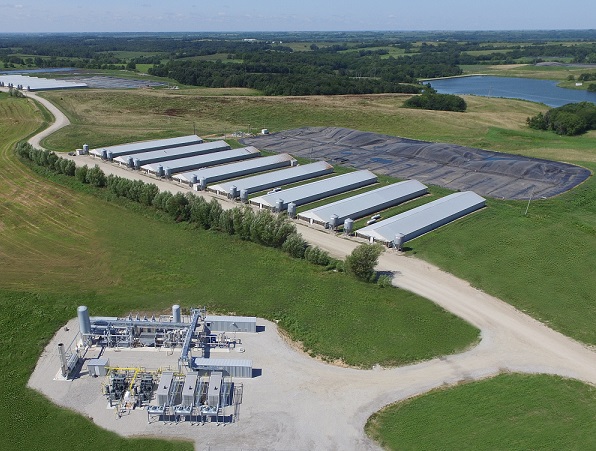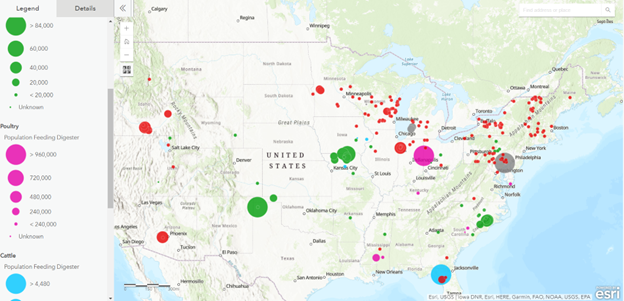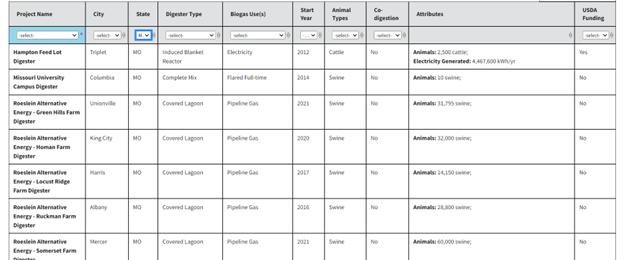Agricultural RNG (Renewable Natural Gas) Projects in Missouri

In the United States, there are now 34 RNG projects under construction and 96 manure-based AD systems that produce RNG (including pipeline injection and compressed natural gas (CNG) plants) (source: EPA AgSTAR Livestock Anaerobic Digester Database).

Missouri currently has 8 swine farms in operation for biogas end use as pipeline gas

For the complete list visit (EPA AgSTAR Livestock Anaerobic Digester Database).
Benefits
Use of RNG can provide benefits in terms of fuel security, economic revenues or savings, local air quality and greenhouse gas emission reductions.
Fuel diversity benefits
Use of RNG increases and diversifies domestic energy production. RNG can be used as a baseload fuel source with high availability rates. It leverages existing infrastructure such as pipelines and heavy-duty vehicles. Biogas feedstocks for RNG are generated continuously from a variety of sources.
Economic benefits
The development of RNG projects can benefit the local economy through the construction of RNG processing and fueling station infrastructure and sale of natural gas-powered vehicles. National, state and local incentives may be available depending on the end use, such as credits for production of RNG used for vehicle fuel. These financial incentives can provide additional economic drivers for project development.
Local air quality benefits
Replacing traditional diesel or gasoline with RNG can significantly reduce emissions of nitrogen oxides and particulate matter, resulting in local air quality benefits. RNG is comprised primarily of methane; compared to fossil natural gas, RNG contains zero to very low levels of constituents, such as ethane, propane, butane, pentane or other trace hydrocarbons.
Greenhouse gas emission reductions
RNG projects capture and recover methane produced at a landfill or anaerobic digestion (AD) facility. Methane has a global warming potential more than 25 times greater than CO2 and a relatively short (12-year) atmospheric life, so reducing these emissions can achieve near-term beneficial impacts in mitigating global climate change. For facilities that are not already required to mitigate such emissions, an RNG project can reduce methane emissions significantly.
(Source: epa.gov | Renewable Natural Gas)







